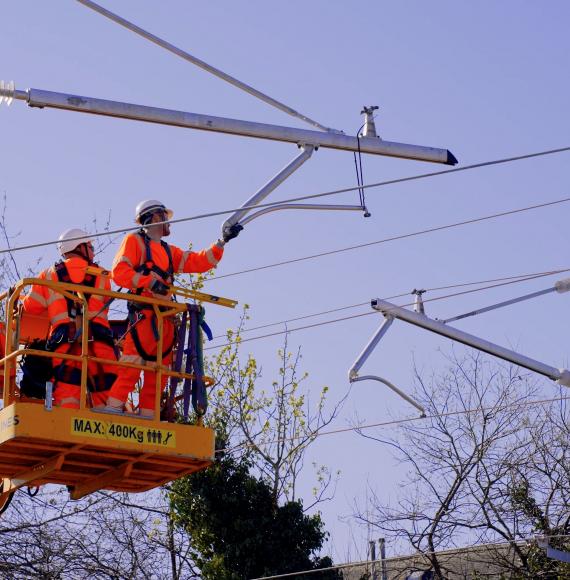Figures have revealed that Greater Anglia have reduced their carbon output for the second year in a row.
Greater Anglia commissioned environmental consultancy WSP to assess the environmental impact of their operations.
WSP found that Greater Anglia reduced its overall Scope 1 and 2 CO2 emissions by 11% during the financial year 2020/21.
This follows another 11% reduction from Greater Anglia in 2019/20.
The reduction in 2020/21 means that around 11,512 equivalent tonnes of CO2 have been prevented from being released into the atmosphere.
These reductions are in part down to the sustained ‘greening’ of the National Grid which now uses more renewable sources to produce electricity.
This is then used to power Greater Anglia’s electric trains, depots and stations.
Greater Anglia are keen to point out the importance of making their operations more eco-friendly.
Stephanie Evans, Greater Anglia’s Environment & Energy Manager said: “Carbon emissions caused by running the trains accounts for around 93% of our total emissions.
“Small improvements in fleet energy efficiency or a move towards energy efficient driving can also really help us to reduce our overall emissions.
“Our new trains are designed to be more efficient and are built to higher emissions standards compared to our old ones.
“[This] will help to make rail travel in East Anglia an even more environmentally friendly option.
“Understanding our environmental performance and impact will help us to become even more sustainable and help us to plan where we need to get to in the future as the industry works towards net zero.”
Greater Anglia is joining the rest of the rail industry in a ‘We Mean Green’ campaign.
The campaign highlights that a single train removes up to 500 cars from the road and that taking the train instead of driving cuts carbon emissions by two thirds.
The ‘We Mean Green’ campaign also shows how every freight train removes an average of 76 lorries from our roads.

















